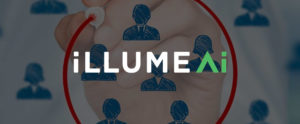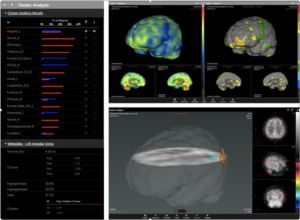America’s 41st president, George H.W. Bush, passed last week, but his collaborative foreign policy strategies will not be forgotten. During his single-term presidency, he played major roles in ending the cold war peacefully, leading a 35-country coalition that dislodged Iraq from Kuwait and reuniting Germany. Former president Bush also signed the American Disabilities Act — a landmark piece of legislation and one that reflects a commitment to the dignity and inclusion of all Americans. However, perhaps his greatest presidential accomplishment was not what he achieved but how he achieved it.
The strengths of Bush’s presidency lie within his prudent and collaborative tactics. “He was a good reminder that as fiercely as we may fight on policy and on issues, that ultimately we’re Americans first,” said former President Barack Obama in a 60 Minutes interview. Bush often put self-interests aside by uniting allies to achieve common goals – a strategy healthcare could and should adopt.
Unite Leaders, Change the World
During Bush’s first year as president, the United States was locked in a nuclear-armed confrontation with the Soviet Union, the Berlin Wall fell and the post-war world was beginning to come apart. It was turbulent times and Bush – the leader of the free world — and Mikhail Gorbachev – the leader of communism – were front and center.
Yet despite their differences (and decades of conflict), Bush was able to create a relationship of trust with Gorbachev and thus, a peaceful resolution to the Cold War. The collaborative relationship between Bush and Gorbachev paved the way for Germany’s reunification, the restoration of full German sovereignty, the retention of German NATO membership and the withdrawal of Soviet troops from the country.
In addition to his relationship with Gorbachev, Bush supported West German Chancellor Helmut Kohl’s 10-point plan to reunify Germany and helped to alleviate concerns from world leaders about Europe’s uncertain future.
Bush’s prudence and collaboration with foreign leaders was not only central to the success of modern Europe but also the Gulf War. With the fall of the Berlin Wall and collapse of the Soviet Union, the dream of world peace guaranteed by a cooperative international structure seemed possible. However, Bush’s New World Order aspirations were put on hold with Saddam Hussein’s 1990 invasion of Kuwait. Rather than a hurdle, former president Bush saw an opportunity to unite world leaders.
In the New World Order just then unfolding, forcible acquisitions of territory had no place. Bush took the lead and sent his diplomats around the world and to the UN in search of allies. He led an unprecedented coalition of 39 countries to push Saddam Hussein and the Iraqi army out of Kuwait.
While critics would contend Bush’s tactics left unfinished business for future presidencies, such arguments can wait. The U.S.-led coalition completed their mission of liberating Kuwait and achieved quick success in the Gulf War. Bush’s legacy is a reminder of how powerful collaboration can be.
Wanted: Collaboration in Healthcare
Healthcare is going through a technological revolution of its own. Can we heed the lessons of America’s 41st president by focusing on collaboration? While the industry has made great strides to work together, such as incorporating the interprofessional team concept in medical education and using internal big data analytic system, more can and should be done to promote data and intra-professional collaborations.
Perhaps, no better specialty is primed for the benefits of collaboration than mental healthcare.
For example, traumatic brain injuries (TBI) are responsible for 2.8 million emergency-related hospital visits each year and an estimated 18 to 44 percent diagnosed with a TBI are readmitted within the following year.1-4 Despite being incredibly common, diagnosing chronic TBI is a challenge for hospitals and healthcare providers because it can lead to psychological issues that mimic other conditions5 and is often invisible to traditional imaging methods. There is no single test to detect chronic TBI, and for healthcare providers who are juggling heavy workloads, it can be easy to miss, misdiagnose or discover too late.
When a patient is experiencing mental health-related symptoms, he or she may see a neurologist, psychiatrist, behavioral therapist, functional chiropractor, a counselor and the list goes on. And, you can bet most specialists don’t communicate with each other, nor embrace other professionals’ diagnoses or treatment protocols.
The lack of collaboration in mental health is a missed opportunity. It is certainly true that many brain-based conditions have non-specific or overlapping symptoms. These factors make it extremely difficult for even the most experienced medical professional to diagnose and treat. The most promising solution to solving this dilemma is rapidly developing the use of intelligent data mining under the wave of “big data” technologies. Enabling technologies into provider practice that can integrate variable data sources to correlate patient data, along with a culture shift in knowledge and data sharing, can unite medical practitioners across the country to provide patients with better care.
My company’s platform, CereMetrix InsightsTM (undergoing beta testing), provides a browser-based, easily integrable platform where any medical professional can collaborate. It gives providers the ability to correlate and pattern match their patient’s data with other cohort patient groups. Physicians can easily analyze data such as imaging, psychological and cognitive testing, proteomic data, to enhance, validate or dismiss subjective observations. This correlated data can help physicians support their clinical findings, decide if other diagnostic tests are needed and guide more effective treatment paths.
Opportunities for collaborative, real-time data analytics in the clinical setting are already beginning to take shape. Companies such as Amara Health Analytics and Sleep.ai are using data and machine learning to fight commonly misdiagnosed conditions. Amara Health Analytics’ Clinical Vigilance for Sepsis uses a predictive model to analyze more than 100 different variables to alert clinicians of at-risk sepsis patients. The Sleep.ai phone app uses data and sound recognition technologies to help diagnose and measure Bruxism symptoms.
We will remember Bush for uniting world leaders and countries in accomplishing historically significant measures and deconstructing the economic self-interest silos associated with the complex world of global politics. Similar silos exist in healthcare. The solution: connecting us ALL with the latest in intelligent systems to realize actionable insights that healthcare organizations can use to provide better patient care. It’s our responsibility to focus on collaboration rather than competition to fully appreciate the potential healthcare data can have in patient care.
*CereMetrix Insights™ is not currently cleared or approved by the U.S. FDA or any other global regulator for commercial availability.
John Kelley is president of CereMetrix® Corp., a brain imaging and data analytics company headquartered in Denver. He has extensive leadership experience in the technology industry, including being CEO of McData Corp. As CEO, he grew McData’s annual revenue from $200 million to $630 million before its sale to Brocade Communications Systems in 2007 for $1 billion. Prior to McData, he was executive vice president of networks at Qwest Communications, overseeing a staff of 26,000.
References:




